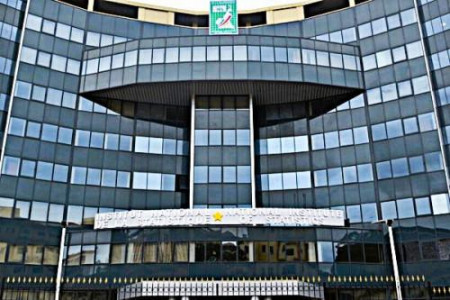Our Terms & Conditions | Our Privacy Policy
Cameroon Secures CFA63.5bn World Bank Loan to Upgrade Its Statistical System
(Business in Cameroon) – Cameroon has signed a CFA63.5 billion credit agreement with the World Bank to improve its National Statistical Information System (SNIS). The deal was signed by Economy Minister Alamine Ousmane Mey on January 20 and by Joseph Tedou, Director General of the National Institute of Statistics (INS), on January 24.
The announcement was made by the INS-DG during a regional workshop in Douala focused on reviewing and validating technical tools for the 2025/26 edition of the Harmonized Household Living Conditions Survey (EHCVM). The funding is part of the West and Central Africa Statistics Harmonization and Improvement Project (PHASAOC), a program running from 2021 to 2030. The World Bank is investing over CFA600 billion in the initiative, with CFA266 billion allocated to the CEMAC region, which includes Cameroon, Gabon, Congo, Chad, the Central African Republic, and Equatorial Guinea.
“This funding will help Cameroon build a stronger, more sustainable statistical system by adopting international standards and generating the critical data and indicators needed to monitor and evaluate the country’s development programs,” said Tedou. The project will focus on modernizing infrastructure, standardizing data collection, and producing key statistics using globally recognized methodologies.
Cameroon’s INS has been actively involved in previous EHCVM survey cycles, which led to the completion of the country’s fifth Household Survey (ECAM 5) for 2021-2022. Published on April 24, 2024, the findings revealed that nearly two out of five Cameroonians live below the national poverty line, set at CFA813 per person per day. “At this threshold, about 10 million people were living in poverty in 2022, out of an estimated population of 27 million,” the INS stated in its report.
According to CEMAC officials, the broader goal of PHASAOC is to enhance coordination and standardize high-quality statistical production across West and Central Africa. Experts from CEMAC and the World Bank emphasize that harmonized data on household living conditions is crucial for understanding social and economic trends, assessing the impact of public policies on poverty and inequality, and improving policymaking across the region.
Ultimately, the project aims to boost the Statistical Performance Indicator (SPI) of participating countries and support some of them in meeting the IMF’s Special Data Dissemination Standard.
Images are for reference only.Images and contents gathered automatic from google or 3rd party sources.All rights on the images and contents are with their legal original owners.



Comments are closed.